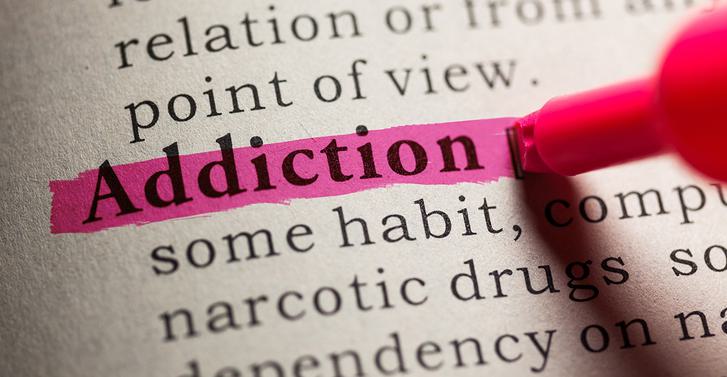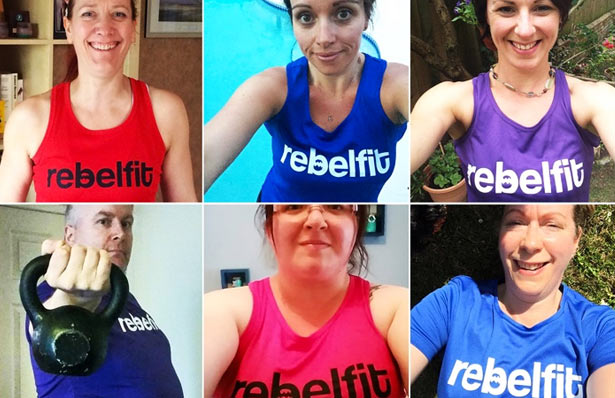
A Rebel's Guide To Food Addiction!
posted on: April 17, 2018. posted in: Weight loss, Nutrition
If you've ever taken part in a Rebelfit mission you will have learned about the six different "eating cues" that drive us to eat and overeat.
Appetite - feeling hungry
Craving - feeling cravings
Emotion - feeling emotions
Environment - where you live
Culture - how you live
Social - who you live with
The first three are "internal eating cues", pulling food into your body. The second three are "external eating cues", pushing food into your body.
So if you're obese right now, one or more of these eating cues will be driving you to eat and overeat, resulting in your weight gain. Is it your appetite? Your cravings? Your emotions? Your environment? Your culture? Your social life? Or a mix and match?
The truth is that every case of obesity is unique and is driven by its own unique combination of eating cues. But many of my obese clients, perhaps most of my obese clients, have become obese due to a particular combination of these eating cues that makes obesity inevitable.
What people call FOOD ADDICTION is really a combination of increased appetite, cravings and emotions that make it almost impossible to stop eating.
The starting point is almost always a lack of connection.
Or to put it another way...
The starting point is almost always isolation.
Modern research has taught us that addiction only arises in certain environments, meaning it's not the substance that is addictive, but the environment we find ourselves in.
One research study looked at a rat put in an empty cage with two bottles of liquid, one containing just water, the other laced with cocaine. The rat always chose the drug laced liquid over the water, and the conclusion was that the drug was addictive. The drug contained something that made the rat want to keep drinking more and more of it.
However, in the 1970s a Canadian psychologist called Professor Alexander observed how the cage was EMPTY. He decided to repeat the same experiment, with the same two bottles of liquid, except this time he created "Rat Park", a cage with lots of balls and games and other rats, creating a connected, socially engaging environment.
The result?
The rats hardly ever used the drug water.
So whilst the isolated rats in the cage almost always overdosed on the cocaine laced water, the rats in the connected "Rat Park" never overdosed on the cocaine laced water.
It wasn't the drug water that was addictive.
It was THE CAGE.
This experiment sheds light on why millions of people given heroin in hospitals, for medical reasons, never become heroin addicts. They are being given the drug in a connected environment, rather than an isolated environment.
This experiment also sheds light on why 95% of heroin users during The Vietnam War came back and stopped using the drug immediately. When they were in the isolated environment of war, that environment drove their addiction. When they were in the connected environment of home, that environment stopped their addiction.
This is all telling us something mind blowing...
Addiction only arises when we lack connection.
We can even go one step further and say...
"Addiction is the opposite of connection."
When humans become isolated from our environment and the people within our environment, we connect to drugs, we connect to alcohol, we connect to gambling, we connect to FOOD. All of which occupies the space in our brains that should be filled by love, by fun, by play and by connection.
Going back to our eating cues...
Appetite - feeling hungry
Craving - feeling cravings
Emotion - feeling emotions
Environment - where you live
Culture - how you live
Social - who you live with
The obese food addict has spent so long, on so many different diets, they no longer have any connection to their environment, their culture or their social life. Their life has become ruled by adherence to their diet, leaving them in complete isolation.
They live in a stressful DIET CAGE where everything is restricted, and the result is an inevitable increase in appetite, cravings and emotions, sewing the seeds of what eventually becomes full blown food addiction.
You can spend your life battling your appetite, your cravings and your emotions, going on 100s of diets to help you find the willpower to resist the urge to eat. But without reconnecting to your environment, and without having FUN, your food addiction will remain.
The take home lesson here?
Weight loss isn't about changing what you eat.
It's about escaping your cage.
Liam
p.s. If you haven't already, don't forget to sign up to our weekly emails where you'll receive nutrition, fitness and mindset inspiration, straight to your inbox! Sign up via our homepage!








